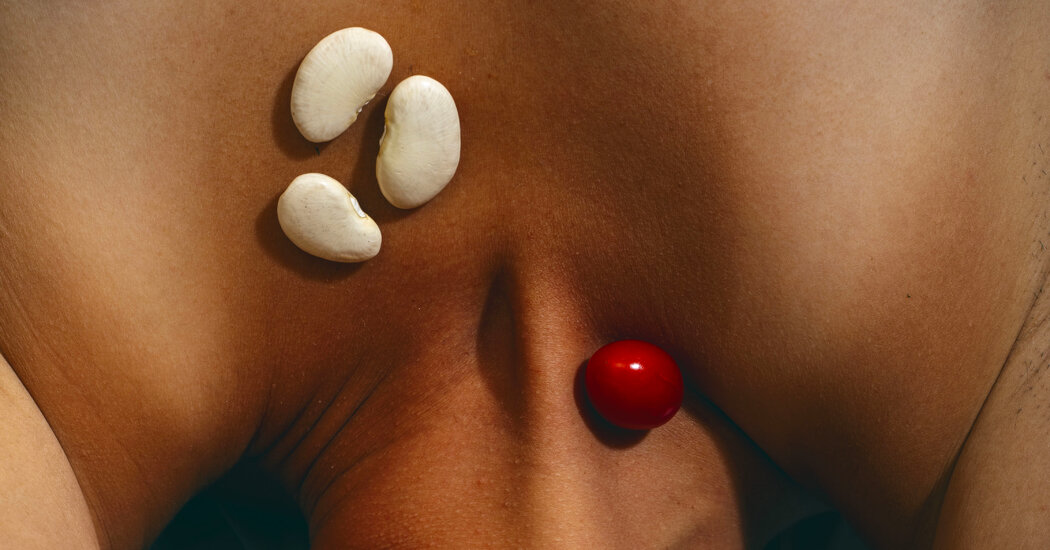
If you’ve ever looked in the mirror and noticed a new pimple or sallow skin, it’s natural to wonder if the food you eat is somehow responsible.
“Our diet absolutely affects our skin,” said Dr. Lauren Ploch, a dermatologist in Aiken, S.C. The skin is an organ, just like your heart or liver, and it’s built and maintained by nutrients from food, she said.
Protein, for example, is used to make collagen, which plumps and maintains the skin and helps heal wounds; and antioxidants like vitamins C and E protect the skin from air pollution and the sun, she said.
But can eating certain foods, like fruits or vegetables, lead to glowing, clear skin? And can other foods, like soda or white bread, worsen acne or “make your skin look terrible,” as some on TikTok have said? Here’s what we know.
What the research suggests
Certain nutrient deficiencies can cause obvious skin problems, said Dr. Mary Chang, an associate professor of dermatology and pediatrics at the University of Connecticut School of Medicine.
A deficiency in vitamin C, for example, can cause scurvy, which leads to symptoms including easy bruising, poor wound healing and rough, thickened skin. And protein deficiencies can cause flaky, discolored skin.
But these conditions, Dr. Chang added, are rare in the United States.
It’s difficult to study the more subtle ways that your diet can affect your skin, but some research offers clues, said Dr. Rajani Katta, a dermatologist and a clinical professor at Baylor College of Medicine.
In one study from the Netherlands published in 2019, for instance, researchers analyzed the dietary records and photographs of about 2,800 older adults, most in their 60s and 70s. They found that women who ate more fruits, vegetables, fish and fiber-rich foods tended to have fewer wrinkles than those who ate more meat and snack foods.
Another study published in 2019 found that women in France who followed the Mediterranean diet had significantly lower risks of developing skin cancer than those who did not. The authors hypothesized that the diet’s antioxidant and anti-inflammatory effects could have played a role.
Some small trials have also found that individual foods may directly affect the skin, Dr. Katta said.
For instance, two studies found that consuming about three tablespoons per day of tomato paste, which is high in an antioxidant called lycopene, protected the skin from sun damage; and there’s some evidence that other plant-based compounds — such as those found in colorful fruits and vegetables, tea, dark chocolate and certain herbs and spices including cloves, cinnamon and mint — may offer a similar defense, though consuming them doesn’t replace the need to wear sunscreen, Dr. Katta said.
Can your diet help treat certain skin conditions?
A few small trials — mostly conducted in teen boys and young men — found that cutting back on sugary and starchy foods, like sodas, sweets, white breads and pasta, helped with acne, Dr. Chang said. And some reports suggest that consuming dairy products or whey protein powder is associated with more severe acne, she added.
The Mediterranean diet may also benefit those with psoriasis, a condition that causes thick, dry and itchy patches of skin, Dr. Ploch added.
In general, though, evidence that dietary changes can treat skin conditions is limited, said Dr. Aaron Drucker, a dermatologist and an associate professor of medicine at the University of Toronto. And even if dietary changes help, he added, you may still need medications.
Dietary advice for healthy skin
Unless you’ve been diagnosed with a specific deficiency, it’s best to get your nutrients from food rather than from supplements, which aren’t well-regulated and can sometimes cause more harm than good, Dr. Ploch said.
In one large clinical trial conducted in France, for instance, adult women who took a daily antioxidant supplement containing vitamins C and E, beta-carotene, selenium and zinc for 7.5 years had a 68 percent greater chance of developing skin cancer than those who did not take the supplement.
And biotin supplements, which claim to support hair, skin and nails, can contain up to 650 times the recommended dose, which may lead to incorrect lab test results.
Dr. Ploch’s go-to recommendation for healthy skin is the Mediterranean diet, which provides beneficial nutrients like antioxidants and protective plant-based compounds, she said.
Dr. Chang also often suggests that her acne-prone patients try cutting back on dairy products and foods high in sugar and refined carbohydrates for at least four to six weeks. This won’t help everyone, she said, but some notice significant improvements.
Eczema and other skin conditions naturally “wax and wane,” so it may not always be obvious if a dietary change is helping or hurting, Dr. Drucker said.
But if you notice that a certain food consistently worsens your symptoms, it makes sense to avoid it, he said.
In general, though, be aware that eliminating too many foods or food groups can have unintended consequences, Dr. Drucker said. If you cut out dairy, for example, you might lose out on calcium and vitamin D, so make sure that your diet is balanced with a variety of foods to meet your nutrient needs.
Source: nytimes.com






















Add comment